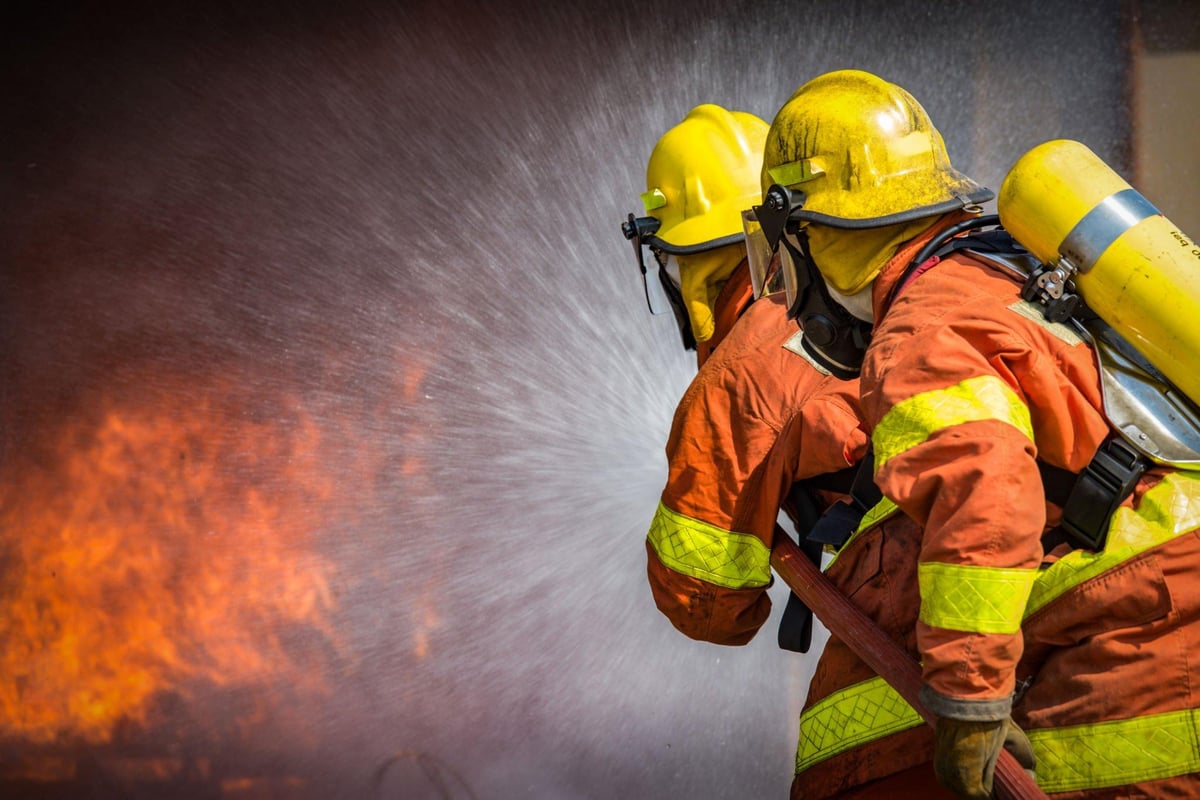Fire Science classes near me in Pittsburgh
In the Pittsburgh metro area, the average cost of a class is $18000 and the average class length is approximately 49 weeks long
Trade and industry classes near
Pittsburgh, PA 15219Online classes
Financial aid
Certificate
Short classes

Liberty University Online
BS: Civil Engineering
- Online, completion in as little as 42 months.
- Option to transfer credits for up to 75% of the entire degree.

Liberty University Online
BS: Aviation Management
- Online, completion in as little as 42 months.
- Option to transfer credits for up to 75% of the entire degree.

Penn Foster
Diesel Mechanics/ Heavy Truck Maintenance Career Diploma
- Affordable, accredited, self-paced
- Students receive Snap-on tools discount
Fire Science classes near me in Pittsburgh
Are you interested in a career in firefighting? Do you live in Pittsburgh and want to find fire science classes near you? Look no further! In this blog post, we will explore the world of fire science and help you find the best training programs in Pittsburgh.

Introduction
Fire science is a field that focuses on preventing and managing fire-related incidents. It involves studying the behavior of fire, learning about fire prevention techniques, and understanding the science behind firefighting. Firefighters play a crucial role in protecting lives and property from the devastating effects of fire.
Training Requirements
Becoming a firefighter requires a combination of education, physical fitness, and on-the-job training. Here are some of the typical training requirements for a career in fire science:
- High school diploma or GED: Most fire departments require candidates to have a high school diploma or equivalent.
- EMT certification: Many fire departments require firefighters to have Emergency Medical Technician (EMT) certification. This training equips firefighters with essential medical skills to provide assistance during emergencies.
- Fire Academy: Firefighters must complete a fire academy training program. These programs provide hands-on training in firefighting techniques, equipment operation, and fire safety protocols.
What to Look for in a Fire Science Class
When searching for fire science classes in Pittsburgh, it's essential to consider several factors to ensure that you find the best program for your needs. Here are some things to look for when evaluating fire science classes:
- Accreditation: Make sure the program is accredited by a recognized accrediting body. Accreditation ensures that the program meets certain academic and professional standards.
- Experienced instructors: Look for programs that have experienced instructors with real-world firefighting experience. These instructors can provide valuable insights and practical knowledge.
- Hands-on training: Fire science is a hands-on field, so it's important to find a program that offers plenty of practical training opportunities. Look for classes that include simulations, live burn exercises, and equipment operation training.
- Job placement assistance: Finding a job in the fire science field can be challenging, so it's helpful to choose a program that offers job placement assistance. This can include resume writing workshops, interview preparation, and networking opportunities.
What to Expect from the Day-to-Day Class
Fire science classes are designed to provide students with the knowledge and skills they need to become successful firefighters. Here's what you can expect from the day-to-day class:
- Classroom lectures: Fire science classes include lectures where students learn about fire behavior, fire prevention techniques, and firefighting strategies. These lectures provide the theoretical foundation for the practical training.
- Practical training: In addition to classroom lectures, fire science classes also include practical training sessions. Students may participate in hands-on exercises, simulations, and live burn drills to practice their firefighting skills.
- Teamwork: Firefighting is a team effort, so fire science classes often emphasize teamwork. Students will work together in groups to solve problems, develop strategies, and practice their communication skills.
- Physical fitness training: Firefighting requires physical strength and endurance. Fire science classes may include physical fitness training sessions to help students build the stamina and strength needed for the job.
Certification Process
After completing a fire science class, you will need to go through the certification process to become a firefighter. The specific requirements may vary depending on the state and fire department, but here are the general steps involved:
- Written exam: You will need to pass a written exam that tests your knowledge of fire science and firefighting techniques.
- Physical fitness test: Firefighting is a physically demanding job, so you will need to pass a physical fitness test that assesses your strength, endurance, and agility.
- Medical evaluation: You will need to undergo a medical evaluation to ensure that you are physically and mentally fit to perform the duties of a firefighter.
- Background check: Fire departments conduct thorough background checks to ensure that candidates have a clean criminal record.
- Interviews: You may be required to participate in one or more interviews to assess your suitability for the role.
- Training academy: If you pass all the requirements, you will be admitted to a fire academy for further training. The academy will provide you with the skills and knowledge needed to become a certified firefighter.
Finding a Job in Fire Science
Once you have completed your fire science training and obtained your certification, you will be ready to start your career as a firefighter. Here are some tips for finding a job in the fire science field:
- Network: Attend job fairs, industry events, and join professional organizations to expand your network. Networking can help you learn about job opportunities and connect with experienced professionals in the field.
- Volunteer: Consider volunteering at your local fire department or participating in community events related to fire safety. Volunteering can help you gain experience and make valuable connections.
- Job boards: Check online job boards and websites that specialize in firefighter recruitment. These platforms often have up-to-date job listings and provide information on how to apply.
Other Classes to Consider
Once you have become a certified firefighter, you may want to explore additional training opportunities to enhance your skills and advance your career. Here are some other classes and certifications that you may consider:
- Hazardous materials training: This training equips firefighters with the knowledge and skills to handle hazardous materials incidents safely.
- Technical rescue training: Technical rescue training focuses on specialized rescue techniques, such as rope rescue, confined space rescue, and water rescue.
- Leadership and management courses: As you progress in your career, you may be interested in taking leadership and management courses to prepare for leadership positions within the fire department.
Final Thoughts
If you are passionate about firefighting and want to pursue a career in fire science, finding the right training program is essential. By considering factors such as accreditation, experienced instructors, hands-on training, and job placement assistance, you can find a fire science class in Pittsburgh that will prepare you for a successful career in firefighting. Remember to check out Dreambound for more information on fire science classes and other vocational training programs.
Dreambound has an extensive collection of guides that dive deep into how to get started in the field, tailored for various cities. For those based in different locations or planning to move, we recommend exploring our other guides.
- How to Become a Firefighter in Connecticut
- How to Become a Firefighter in Kentucky
- How to Become a Firefighter in Massachusetts
- How to Become a Firefighter in New York
- How to Become a Firefighter in West Virginia
If you're exploring various professional paths, Dreambound has in-depth guides to help assist you. Explore a few of these resources below.
FAQ
What is Dreambound?
Dreambound is the largest platform for students to find career & technical training programs. While we can't guarantee a career outcome, our mission is to provide all the information you need to find the perfect program for you.
What programs do you offer?
Dreambound has over 70 programs across healthcare, technology, business, and industrial trades. This includes programs such as Medical Billing, Cybersecurity, and welding.
Do you offer financial aid?
Some of our schools offer financial aid for those who qualify. Many others offer payment plans, where you can pay the cost of class over time.
Is it possible to do online classes?
Yes, Dreambound offers many online programs. On Dreambound's search, you can filter by online, in-person, and hybrid (part online, part in-person).
